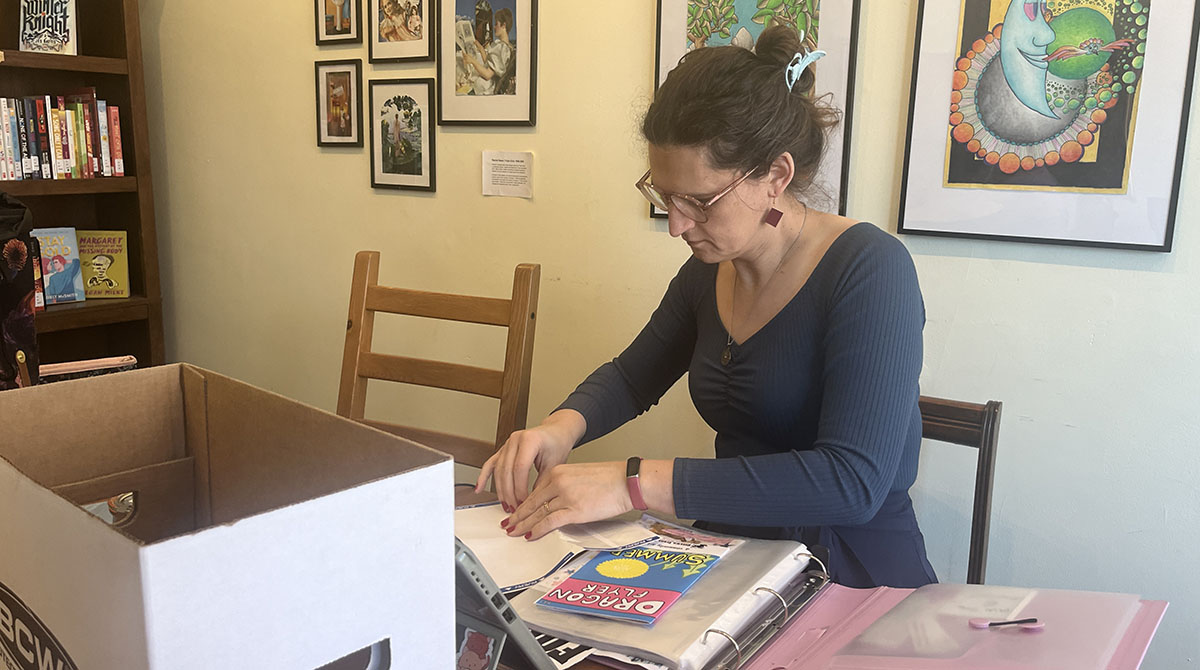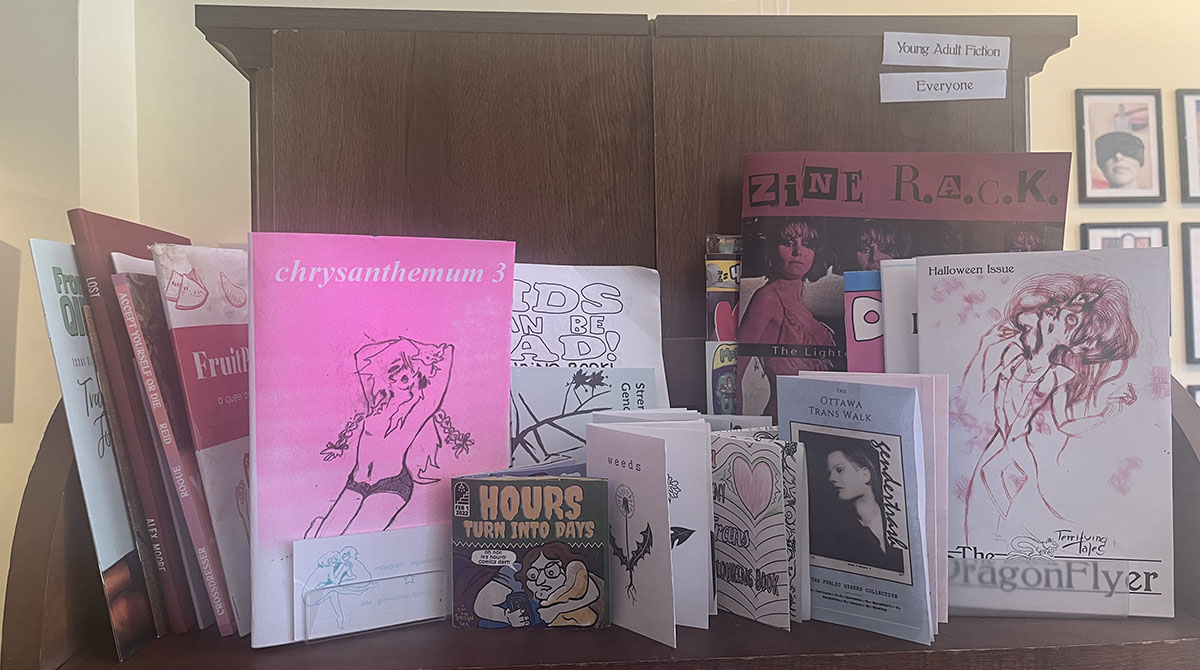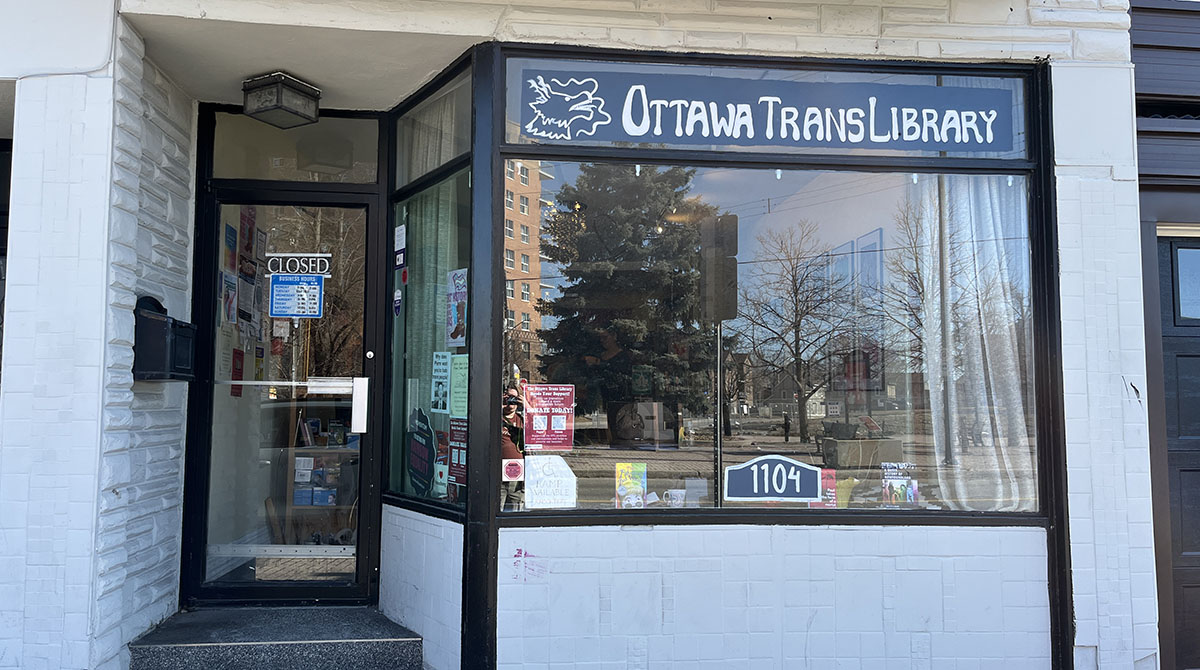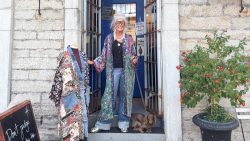A few years ago, Alice Holland developed a passion for librarianship and that interest led her to one particular institution. Today she is a busy volunteer in the stacks of the Ottawa Trans Library in Hintonburg, doing everything from acquisitions, to cataloguing, to running programs.
With challenges to 2SLBGTQ+ books and culture on the rise in North American libraries, Holland is part of the team at the Ottawa Trans Library that is protecting trans art and building community to counter transphobia and censorship.

The Ottawa Trans Library was founded in 2021 by Tara Sypniewski and the library now has more than 1,000 books in its collection. The library also includes art and special collections including music, zines, and other items that aren’t traditionally published.
Holland says many of these materials, including zines, would have otherwise been lost to time.
She started the Ottawa Trans Library’s own zine, The Dragonflyer, and hosts zine workshops where people work on their own projects or contribute to the Dragonflyer.
Holland said she started the workshops and collection because she wants to preserve stories that otherwise aren’t collected.
“Our people, patrons, members of our community are telling stories in zines. And they’re not getting published, and they’re not getting collected, and they’re getting traded. And then they’re going out of print,” she said.
“I wanted to keep the stories.”
Laura Horak, creator of the Trans Media Lab and Portal, says that producing art is more accessible and widespread than ever but at the same time, backlash against trans media is on the rise.
The film studies professor at Carleton University says support and backlash against trans media is cyclical. From her research of trans film history, she notes that crossdressing and gender-play have been part of film since its inception in the 19th century and 2SLGBTQ+ themes have gone in and out of style since.

“[The reaction to trans media] is like a pendulum over all of that time, where it will be a new kind of ‘it’ thing, a popular, cool, new thing, and then there’ll be some political backlash, and then it’ll get forgotten, and then all of a sudden, there’ll be some new movie or some new star, and people will be like, ‘Oh, trans is a thing,’” she said.
She says that it’s important to keep collections of past and present trans art because otherwise people will forget the media exists.
“People forget really easily. The media forgets and the public forgets,” she said. “If you don’t have marginalized people keeping their own materials and making sure that the next generation can see them and learn from them, then the next generation is going to think that there was nobody and that they didn’t make anything, and that cycle of forgetting has also happened a lot, so it could easily happen right now.”
Holland says the relationship between collecting materials and curating a vibrant community space at The Ottawa Trans Library is an important one.
In addition to the zine workshops, there are board game nights, parent coffee hours, nonbinary ‘crafternoons’ and other programs.
Cara Tierny, a local artist and board member, says the library has been very important to them and other trans people.
“We don’t necessarily have physical spaces that are entirely devoted to us, and it’s been incredible to see in the past three years, just what it has meant to have a physical location entirely devoted to our history and our stories and our voices,” they said.
Holland says that being trans can be isolating and lonely if you don’t have a welcoming community like the trans library.
“Being a part of a community helps you be free to be yourself,” she said.
“People want that, and so all we have to do is open the door and say, you’re welcome here, and people have been coming.”
Holland says that the Ottawa Trans Library has created opportunities to build community with non-trans people as well.
Holland says people feel comfortable asking questions at the library, and they are less afraid of saying the “wrong” words or getting “cancelled” for their confusion. She said some of her favourite interactions are when people come in to ask how they can support their trans family members.
“We help them find a book, and we help them feel comfortable supporting their family. We have an entire section just for that, and I love helping people find out that they can learn,” she added.
As transphobic rhetoric and violence is on the rise, Holland says that libraries can be places of resistance to that hate by building community.
“I think the foundation of resistance is community. If you don’t know who you’re fighting with and fighting for, how do you fight with them? How do you fight for them?” she said.




